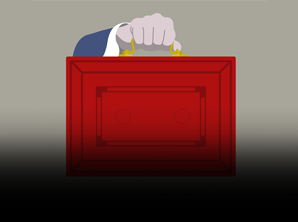Pandemic post-mortems an exercise in conformation bias
SUGGESTED

Jamie Whyte writes in Conservative Home

Mark Littlewood comments in Politico

Kristian Niemietz writes in CapX
Kristian wrote:
“What explains this effect (which subsequently became known as ‘Attitude Polarisation’)? The clue is in the parts where students evaluate the studies, in which they showed
‘…a propensity […] to judge confirming evidence as relevant and reliable but disconfirming evidence as irrelevant and unreliable, and to accept confirming evidence at face value while scrutinizing disconfirming evidence hypercritically’.
“In other words, each side interpreted the evidence in ways that made it conform with what they already believed.
“Over the past two weeks, we have seen this exact process unfold with regard to the Lockdown Files, the WhatsApp messages of former Health Secretary Matt Hancock which were leaked to the Telegraph by journalist Isabel Oakeshott. The leaked messages give us some insight into what was going on behind the scenes during the pandemic.
“There was a time when a pandemic might have created a unifying we’re-all-in-this-together effect; if not quite a ‘Blitz Spirit’, then at least an occasion for toning down some of our everyday political squabbles. But in the politically hyper-polarised country that Britain has become over the past eight years or so, of course, pandemic policy immediately became a new battleground. People constructed political identities around their attitudes to lockdowns, facemasks, vaccines, even to working from home, and formed political tribes on that basis.
“The issue was not so much ‘fake news’ or ‘medical misinformation’, but our innate tendency to read new information selectively, and integrate it into what we already believe.”
Read Kristian’s full piece here.



